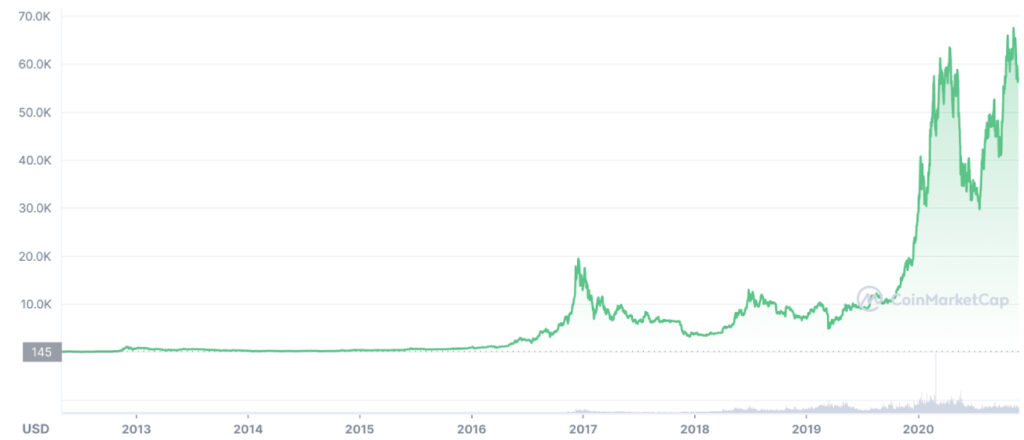As we approach the end of Crypto Literacy Month 2021, it’s a great time to reflect and think about the true meaning behind all of the hype and excitement surrounding cryptocurrencies. During big market upticks, it can sometimes be easy to forget why these technologies matter so much and all of the things that widely-adopted cryptocurrency systems will be able to change.
Here are a few high level reasons why cryptocurrency is so important:
One: Peer-to-peer digital payments
This is the idea that started it all. In the Bitcoin Whitepaper, which first laid out the conceptual framework of Bitcoin, Satoshi Nakamoto outlines a system of computing power and cryptography as a way to make transactions between people possible — without the need for a middleman or intermediary, or any other kind of trust.
Since its creation in 2009, the uses of bitcoin have continually evolved (more of them are covered below), but its utility as a peer-to-peer digital cash-like system remains. In fact, some of the fastest growing adoption rates are happening in developing economies, or places that don’t have as much financial infrastructure as more developed economies.
Two: Return on investment
One of the reasons that bitcoin continues to grow is that investing in bitcoin’s underlying protocol has produced an outsized return on investment when compared to other kinds of opportunities such as traditional equities.
Part of the reasons why bitcoin has been such a successful investment is that it is designed, at the computer code level, to become more scarce overtime. The rules of the network actually create supply-side demand, which drives the price up, which creates more demand. Another thing is that the economic rules governing bitcoin are laid out for all to see, so there is no risk of conditions changing — as is often the case with traditional currencies that are under the control of the policies of central bankers.

Three: Digital store of value
Bitcoin continues to be a volatile asset when looked at on a day-to-day scale. But given enough time, like year-to-year, or over the past decade, bitcoin has risen in value. This choppy rise, which is a product of clear economic rules and increasing global adoption and demand, is one of the reasons why bitcoin is viewed as a digital store of value.
And when compared to other traditional stores of value like gold, for example, bitcoin is more portable (it’s computer code), more liquid (the market never closes), and universally accepted around the world.
Four: Hedge against uncertainty
As part of a response to the recent global pandemic, several of the most powerful governments and central banks in the world began printing money and otherwise manipulating their economies to avoid short-term disruptions and disasters. The money printing and economic manipulations are largely viewed as experimental and the long term effects are unknown. Already, concerns about inflation are gripping mainstream news cycles. In developing economies, where government-backed currencies were already considered fragile, the situation is worse.
In these kinds of macroeconomic conditions, one emerging use case for bitcoin is to act as a hedge against uncertainty. Since bitcoin can act both as a store of value and an easily transferable currency if needed, it is a handy option for many people across the world.
Overtime, it will be interesting to see if bitcoin will also become a global reserve that is apolitical and truly global.
Five: Rails for digital transformation
New digital innovations like non-fungible tokens (NFTs) and decentralized financial products and services (DeFi) are only made possible by the programmability and adaptability of cryptocurrencies. Just like the internet disrupted information monopolies, cryptocurrencies will disrupt financial monopolies and create new possibilities using the programmable, trustless networks as infrastructure.
Learn more about this and other topics by taking courses in the bitcoin, NFTs, DeFi, and security sections of the site. And be sure to take the crypto literacy quiz.
